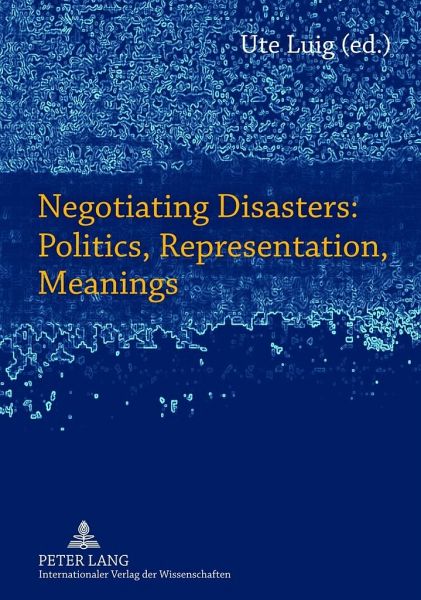
Negotiating Disasters: Politics, Representation, Meanings
Versandkostenfrei!
Versandfertig in 6-10 Tagen
77,40 €
inkl. MwSt.

PAYBACK Punkte
0 °P sammeln!
A wide spectrum of events are covered ranging from floods, the tsunami of 2004, earthquakes and landslides to such long-term processes as the decline of pastures or coastlines. The diversity of the case studies opens up questions on method and the conceptualization of terms. Many authors, among them anthropologists, sociologists, geographers and cultural psychologists engage in definition of crisis, disaster and catastrophe in order to differentiate emic and etic perceptions. They discuss topics like the politics of disaster, developments of boom economies, memory, rituals of mourning and cult...
A wide spectrum of events are covered ranging from floods, the tsunami of 2004, earthquakes and landslides to such long-term processes as the decline of pastures or coastlines. The diversity of the case studies opens up questions on method and the conceptualization of terms. Many authors, among them anthropologists, sociologists, geographers and cultural psychologists engage in definition of crisis, disaster and catastrophe in order to differentiate emic and etic perceptions. They discuss topics like the politics of disaster, developments of boom economies, memory, rituals of mourning and culture change to name but a few. Concepts like risk, vulnerability and resilience are given ample theoretical consideration and are linked to local meanings and interpretation. This book reflects earlier research results and compares them with new theoretical and empirical findings.












